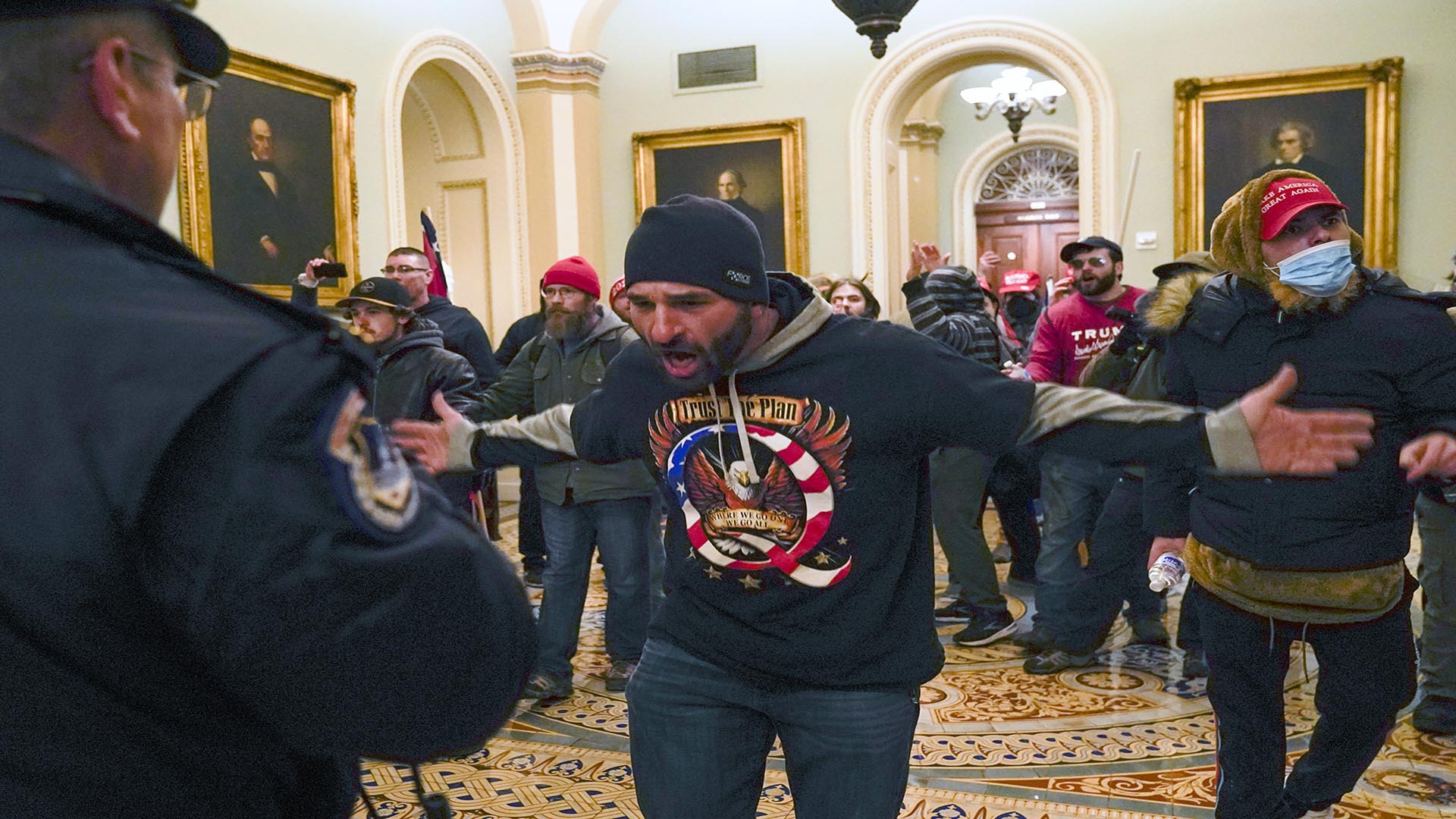

The Defense Department is taking heat for describing the recent attempted insurrection on Capitol Hill as “First Amendment Protests in Washington D.C.”
On Friday, the Pentagon released a timeline of how the National Guard was activated for and responded to the Jan. 6 riots, during which a pro-Trump mob attempted to recreate the 1917 Bolshevik revolution by storming Congress.
Five people died as a result of the terrorist attack on Congress, including Ashli Babbitt, an Air Force veteran who was shot and killed by police, and Brian Sicknick, a Capitol Police Officer and veteran of the New Jersey Air National Guard who died after reportedly being hit by a fire extinguisher.
Some people noted on Twitter that the Pentagon described the attempted putsch as “First Amendment Protests” – a much milder description of the mayhem than when former Defense Secretary Mark Esper urged State officials this summer to “dominate the battlespace” in response to protests that erupted around the country over the death of George Floyd at the hands of Minneapolis police officers.
Video: Statement from Air Force Chief of Staff Gen. C.Q. Brown on the death of George Floyd
Jim Golby, a senior fellow at the Clements Center for National Security at University of Texas, Austin, tweeted that the Pentagon’s description of the riots was, “Sickening and politically tone-deaf from the Office of the Secretary of Defense.”
However, a defense official told Task & Purpose on Sunday that the Pentagon had simply used the same verbiage that came from a Dec. 31 memo from the Washington, D.C., city government to the head of the D.C. National Guard that requested help for Jan. 6.
Last week, Washington, D.C. Mayor Muriel Bowser’s office provided Task & Purpose with a copy of a similar Dec. 31 letter to the commander of the D.C. National Guard that describes the upcoming event as “First Amendment demonstrations permitted by the National Park Service.”
Bowser’s office could not be immediately reached for comment.
The assault on Capitol Hill was incited by outgoing President Donald Trump, who had waged an effort for weeks to pressure lawmakers and other officials to reverse the outcome of the presidential election.
Twitter decided to ban Trump on Jan. 8, in part because it had discovered plans for another assault on capitol buildings that was planned for Jan. 17.
UPDATE: This story was updated on Jan. 10 to make clear that the Dec. 31 letter from Mayor Bowser’s office was similar to the memo referenced by the defense official.
Featured image: In this Jan. 6, 2021, file photo, Trump supporters gesture to U.S. Capitol Police in the hallway outside of the Senate chamber at the Capitol in Washington. (AP Photo/Manuel Balce Ceneta, File).
